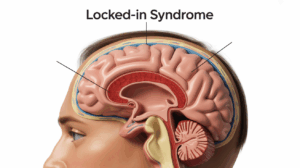
When you go to the doctor, you expect to get a treatment plan that helps you get better. Unfortunately, people often get the wrong diagnosis, and it can lead to unnecessary treatments, delayed care, or even permanent injury.
Recognizing the signs of a medical misdiagnosis can help you protect your health and legal rights. A Fort Lauderdale medical malpractice lawyer can investigate your case and help you pursue compensation for medical negligence.
What Is a Medical Misdiagnosis?
A medical misdiagnosis happens when a healthcare provider gives the wrong diagnosis, misses a diagnosis entirely, or delays identifying a condition. This can occur in any medical setting and involve any type of illness or injury. A misdiagnosis can take several forms, such as:
- Incorrect diagnosis: A doctor identifies the wrong illness, leading to treatments that don’t help or even make things worse.
- Missed diagnosis: The provider fails to recognize a medical condition altogether, causing the patient to go untreated.
- Delayed diagnosis: The correct condition is eventually identified, but only after harmful delays that affect recovery or survival.
- Partial diagnosis: The doctor correctly diagnoses one issue but overlooks another related condition that contributes to the patient’s symptoms.
Signs That a Medical Misdiagnosis Happened
Certain red flags can suggest a misdiagnosis occurred. You may be the victim of a misdiagnosis if:
- Your symptoms don’t improve with treatment: If you have followed your doctor’s instructions but your condition stays the same (or gets worse ), it could be a sign that you were misdiagnosed. A treatment based on the wrong diagnosis will usually have little or no effect.
- Your symptoms don’t match your diagnosis: Sometimes, you are given a diagnosis that just doesn’t fit what you are feeling or experiencing. If the symptoms you have don’t align with what’s typical for your supposed condition, it’s worth getting a second opinion.
- Your doctor doesn’t order tests or ignores results: Proper testing is critical to confirm a diagnosis. If your provider dismisses the need for tests, fails to review them, or overlooks abnormal findings, that’s a warning sign.
- You are not getting answers to reasonable questions: A good doctor should explain your diagnosis, what it means, and how the treatment will help. If you are getting vague or defensive responses when you ask about your condition, it may mean your provider is uncertain or has made an error.
- Your condition suddenly worsens without explanation: When symptoms take a sharp turn for the worse and your doctor’s explanation doesn’t make sense, it might mean they missed something important.
- Another doctor gives you a different diagnosis: One of the clearest signs of a misdiagnosis is when another qualified professional reviews your case and reaches a completely different conclusion.
Consider consulting a medical malpractice lawyer to review your case.
Common Conditions That Are Often Misdiagnosed
Some health problems are more prone to misdiagnosis than others, especially when their symptoms overlap with other conditions. Examples include:
- Heart attacks: A heart attack is often mistaken for anxiety, heartburn, or muscle pain, especially in women and younger patients. This can lead to dangerous delays in treatment.
- Strokes: A stroke is sometimes misdiagnosed as a migraine, vertigo, or even intoxication. When this happens, patients may lose critical time that could have prevented lasting damage.
- Infections: Serious infections such as sepsis, meningitis, or Lyme disease can be missed if a doctor assumes a mild virus is to blame. This can cause the infection to spread and worsen rapidly.
- Cancer: Early cancer symptoms can resemble benign conditions, leading doctors to dismiss or misinterpret them. A delay in diagnosis can reduce treatment options and survival chances.
- Autoimmune diseases: Conditions like lupus or multiple sclerosis may take years to identify because their symptoms mimic other illnesses. As a result, patients may endure unnecessary treatments or worsening symptoms before getting answers.
Why Do Medical Misdiagnoses Happen?
Even skilled doctors can make mistakes. That said, some errors stem from preventable issues, such as:
- Rushed appointments: Short visit times can lead to overlooked details or incomplete histories.
- Failure to listen to patients: Dismissing a patient’s description of symptoms can cause important clues to be missed.
- Incomplete testing or interpretation errors: Misreading test results or skipping key diagnostics can easily result in the wrong conclusion.
- Biases and assumptions: Doctors may rely on stereotypes or prior experience instead of considering all possibilities.
- Poor communication among medical staff: When doctors, nurses, and specialists don’t share information properly, critical details can fall through the cracks.
What to Do If You Suspect a Misdiagnosis
If you think your doctor got it wrong, you don’t have to accept it quietly. There are steps you can take to protect yourself and your health. Specifically, you should:
- Get a second opinion: Seek out another opinion from a doctor who specializes in your condition.
- Request copies of your records: Your medical charts, test results, and imaging reports can help identify inconsistencies.
- Document your symptoms: Keep a detailed record of your symptoms, treatments, and how you have responded to them.
- Don’t be afraid to ask questions: You have every right to understand your diagnosis and treatment options.
- Consult a medical malpractice lawyer: If the misdiagnosis caused significant harm, financial loss, or long-term damage, an attorney can help you file a claim.
Get Help from a Medical Malpractice Lawyer
A medical misdiagnosis can delay recovery, cause unnecessary pain, and, in some cases, lead to irreversible harm. If you believe you were harmed because of a misdiagnosis, a medical malpractice lawyer from Anidjar & Levine can uncover the truth and help you pursue the compensation you deserve.
Book a free case review to discuss your situation today. You pay nothing unless we recover compensation for you.









